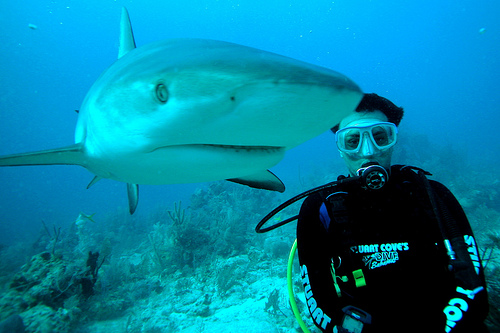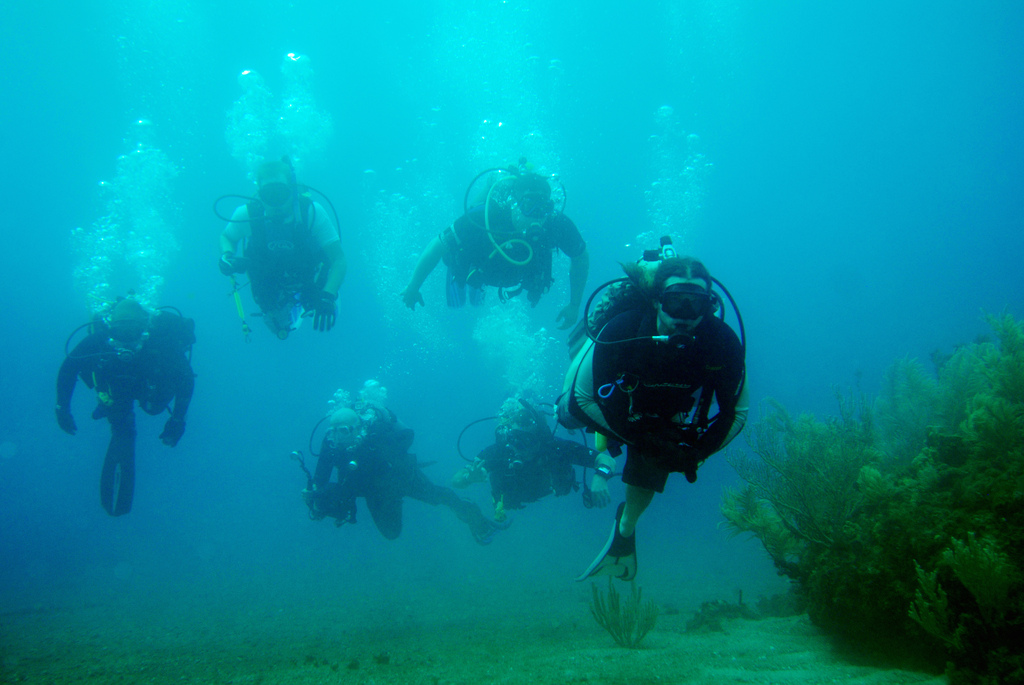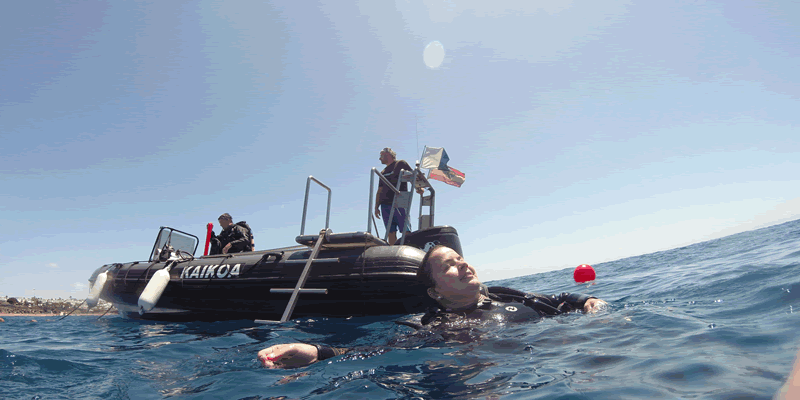Whether you’re heading off on a Maldives Diving holiday or an African adventure this summer, diving with sharks is one of the most thrilling aspects of scuba. But as well as adopting the usual codes of safe underwater conduct, there are a few other things that you should take into consideration when diving with sharks:
Know your sharks: Do some background research on the types of sharks you’re likely to encounter. On Maldives Diving holidays for example, you’re more likely to come across unaggressive, white tipped reef sharks, where as if you’re diving off Coco’s island in Costa Rica, then you could find yourself in the company of hammerheads. Understanding how to recognise these different species will not only help to make your dive more fulfilling but will also allow you to spot which ones to keep a bigger distance from.
Understand their behaviour: Any creature can become agitated by nervous behaviour, so make sure that you’re not freaking out unnecessarily by understanding how to spot signs of unusual or threatening behaviour: If you encounter a whale shark on a Maldives Diving holiday, you should know that these gentle giants will happily allow divers to swim alongside them; if you’re lucky enough to see a tiger shark when diving off the coast of Hawaii, you should know that these creatures are usually very shy and typically avoid humans; silvertip sharks (Pacific and Indian Oceans) are also fairly subdued, but can become agitated when bait or competing sharks are around; and if diving with hammerheads, you should be looking out for changes in swimming style – jerky movements and an increase in muscular tension are your cue to get out of the water.
Keep it simple: Be mindful of the increasing pressures that come with night/evening diving, turbid water, currents and equipment handling. If it’s your first-ever shark dive, the best advice is to keep things simple.
Remember who’s boss: Respect the sharks’ home and personal space by never trying to touch them, or disturbing their natural habitat. Allow the shark to approach you, and if it swims away in the blue, don’t chase it.
Keep an eye out but don’t stare: It’s important to be aware of where a shark is when it’s in relatively close proximity, but many experts advise that most sharks don’t like to be starred at. To be on the safe side, keep an eye on the shark’s tail and watch the behaviour of other fish in the area, so see if they appear threatened at all.
Be small and still: Make yourself as unthreatening as possible: it’s better to lie flat, as an upright diver tends to appear more threatening than a horizontal one. Diving in small groups and avoiding clustering with other divers will also reduce the threat to the shark and minimise the chance of defensive behaviour.
Don’t feed the fish: Encouraging a shark to associate divers with food is certainly something you don’t want to encourage. Never feed a shark, or any other fish, for that matter.
Be confident in the contingency plan: It’s vital to make sure that you have a clear contingency plan in place and that you are able to communicate effectively underwater. Do a few surface drills with hand signals before you descend and be confident that you have gone over the procedures with every member of your team, both on as well as under the surface. A thorough site analysis needs to be carried out before you embark on the dive, which includes careful consideration of entry and exit points.
Go slow: Sudden or unexpected movements are a bad idea around sharks. Aim to move slowly, consistently and deliberately – hiding behind rocks and darting from one position to the next can easily attract the wrong kind of attention. Ideally, wait for the shark to leave, before exiting the area but, if you need to ascend, do so with confidence and make a calm, quiet exit, avoiding a prolonged surface wait.
Tags: Red Sea Liveaboards, Red Sea Live Aboards, Maldives Liveaboards, Maldives Live Aboards, Red Sea Diving, Maldives Diving, Egypt Diving, Egypt Dive



